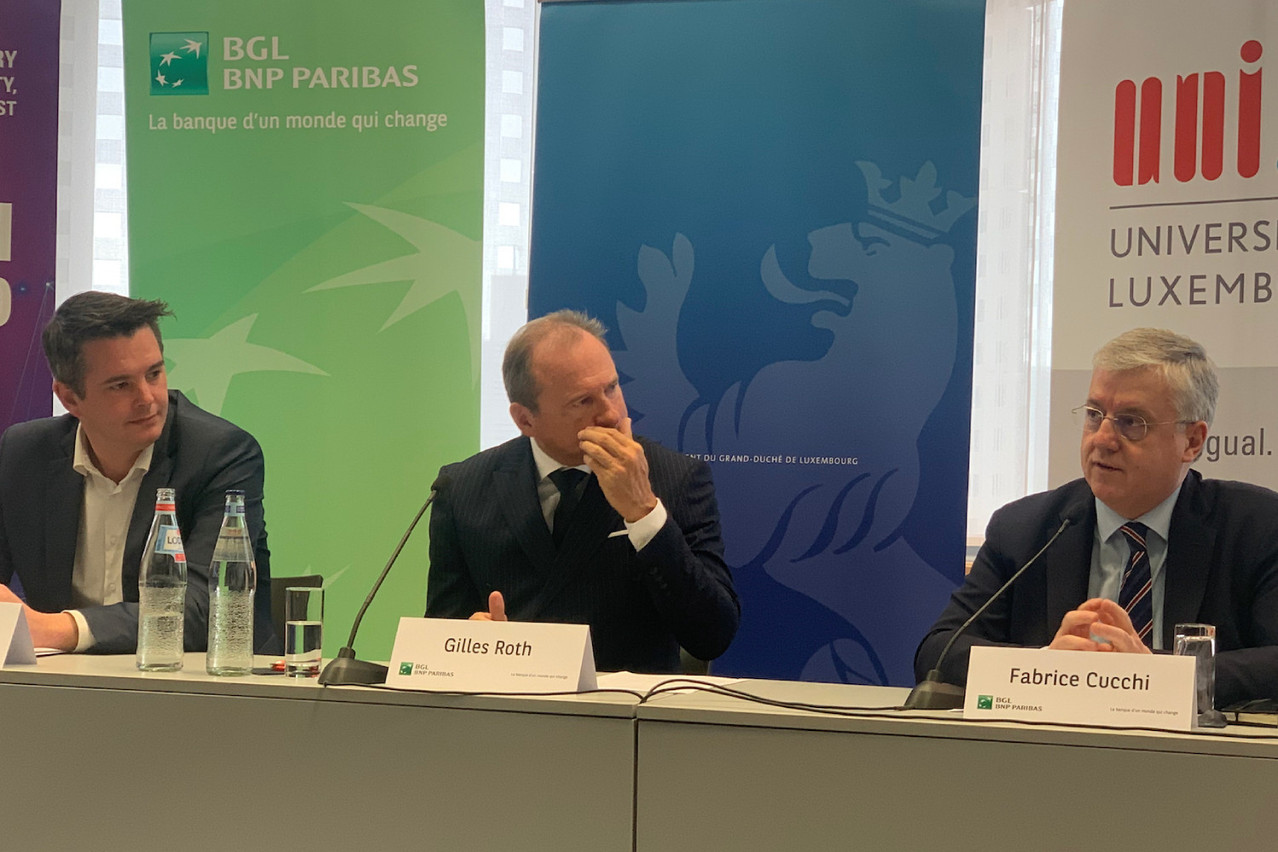Is the artificial intelligence used in some of the technological solutions used by BGL BNP Paribas ethical or does it suffer from bias? Is it responsible? Is it vulnerable to cyber attacks? And what about when the next generation, generative artificial intelligence, is no longer just about automation, but about generating data?
More than seven years after initiating small projects with the Interdisciplinary Centre for Security, Reliability and Trust (SNT) at the University of Luxembourg, BGL BNP Paribas will be the first bank in Luxembourg to embark on a new research project to answer these questions.
The state, which owns 34% of the bank, will provide €2.95m of the €7.4m required over the next three years, via the economy and finance ministries. “This is a strong signal from BGL BNP Paribas,” stressed finance minister (CSV) on Thursday 25 January at the Franco-Luxembourg bank’s head office in Kirchberg, when the project was presented. “It is also a demonstration of the strength of our toolbox for the benefit of digital transformation and the opportunities that digitalisation can bring to the Luxembourg financial centre.” And all this, he added, in a context where it is necessary not only to meet European regulatory requirements, but also the guidelines set by Luxembourg’s financial regulator, the Financial Sector Supervisory Commission (CSSF), since 2018.
Increasing Luxembourg’s attractiveness
, chairwoman of the bank’s executive committee and head of BNP Paribas group entities in Luxembourg, and , chief transformation officer, have another interest in this project: the attractiveness of the bank, which is among the five largest employers in Luxembourg. “This ministry of the economy-SNT-BGL BNP Paribas tripartite is very attractive and very strong,” said Belorgey. “And that is currently the main advantage of this project, which we should try to expand in Luxembourg. The CTO’s team is made up of around fifteen people, including six data scientists--an extremely complicated profile to bring to Luxembourg and retain--and a team of around ten people dedicated to cybersecurity. For these highly sought-after experts, who are sometimes poached from within the bank by major international players, the project is a very important motivating factor, on a par with the salary, working conditions, accommodation and the possibility of finding school places in Luxembourg for their children. Because they have a fundamental and applied research topic to work on, but also because they are close to the Luxembourg research centre, which has an established reputation.”
Yves Le Traon, who has been , explained that he had not written a special speech for the occasion, so that his enthusiasm could still be felt. “We're at an extraordinary moment! And SNT reflects the country’s strategy,” he said.
“I hope that other major players in the marketplace will follow suit and also launch R&D projects linked to AI,” said economy minister, (DP), while Roth pointed out the increase in the investment subsidy ceiling to 18% for companies.
“The government is very optimistic,” added Delles, sidestepping the absence of the minister for digitalisation, (DP), by saying “the subject interests the prime minister, who could also have been present. We couldn’t come with four ministers, so those who [represent the ministries that] are funding this project came.”
This article was first published in French on . It has been translated and edited for Delano.
Updated 25 January at 4:15pm, to correct the date that Yves Le Traon assumed his new role, and at 4:40pm to correct his job title.
